University of Tartu
Established in 1632, the University of Tartu (UT) is the oldest and largest university in Estonia both in terms of staff and student numbers, as well as the volume of its teaching, research and development activities. UT is the only university in the Baltic region that belongs to the top 1.2% of the world’s best universities. UT places great importance on international co-operation and partnerships with reputable research universities all over the world. Institutional cooperation with 80 partner universities in 31 countries extends from the Baltic Sea area to North America, East Asia and Australia.
The Centre for Science Education (CSE) within the Institute of Earth and Life Sciences in the Faculty of Science and Technology - is the only research Centre for science education in Estonia. CSE has 2 professors, 2 associated professors, 10 PhD students and a number of international scholars. Besides research activities, CSE is involved in teaching pre-service teachers and in conducting in-service teacher courses at interdisciplinary levels and in the separate science subjects. The science teacher training programmes include courses conducted in partnership with industry & science centres.
The Centre staff has been heavily involved in developing teaching-learning materials in Estonia (including on-line materials and MOOC-s), has published 5 books and produced resources for UNESCO, based on IBSE related material-writing workshops in a range of countries. The Centre has been the national coordinating centre for more than 7 European projects the
Ministry of Education
Professor Miia RANNIKMÄE, PhD (Coordinator of the AcaSTEMy project)
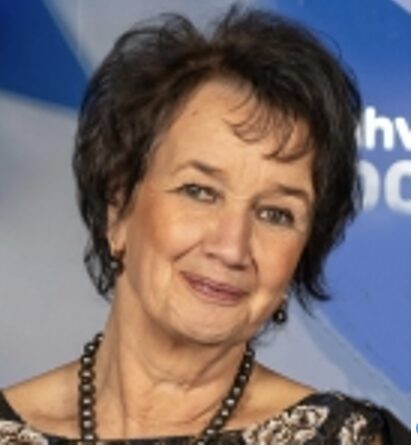
Miia Rannikmäe is professor in Science education in Centre for Science Education in the Institute of Earth and Life Sciences within the Faculty of Science and Technology. She has considerable experience in science education in Estonia, Europe and worldwide (Fulbright fellow – University of Iowa, USA). She has a strong school teaching background, extensive experience in pre- and in-service teacher training and has strong links with science teacher associations worldwide. She has been a member of an EC high-level group associated with the publication of a 2004 report on ‘Europe needs more Scientists’.
Her research interests cover areas such as cognitive learning in sciences, relevance of science education, scientific and technological literacy, context-based teaching and assessment. She has published over 160 articles
As the principal researcher for Estonia, she has run a number of EC funded projects, like PARSEL, ESTABLISH, PROFILES, MultiCo. She is the coordinator of Horisont 2020 Sci Car project.
Full CV: Miia Rannikmäe (etis.ee)
Moonika Teppo (Project manager of AcaSTEMy project)

Moonika Teppo is working as a doctoral research fellow of science education and currently applying doctoral degree in educational sciences. Her research focuses on affective factors (motivation, interest, attitudes) influencing students’ learning in science. She is educated as a science teacher and has practical experience working at Estonian lower secondary schools. She is participating in an international and national research- and development projects, supervises master’s students and teaches quantitative data analysis course. Moonika has been selected to the international organising team of JURE 2024 conference.
Full CV: Moonika Teppo (etis.ee)
Associate professor Regina Soobard, PhD
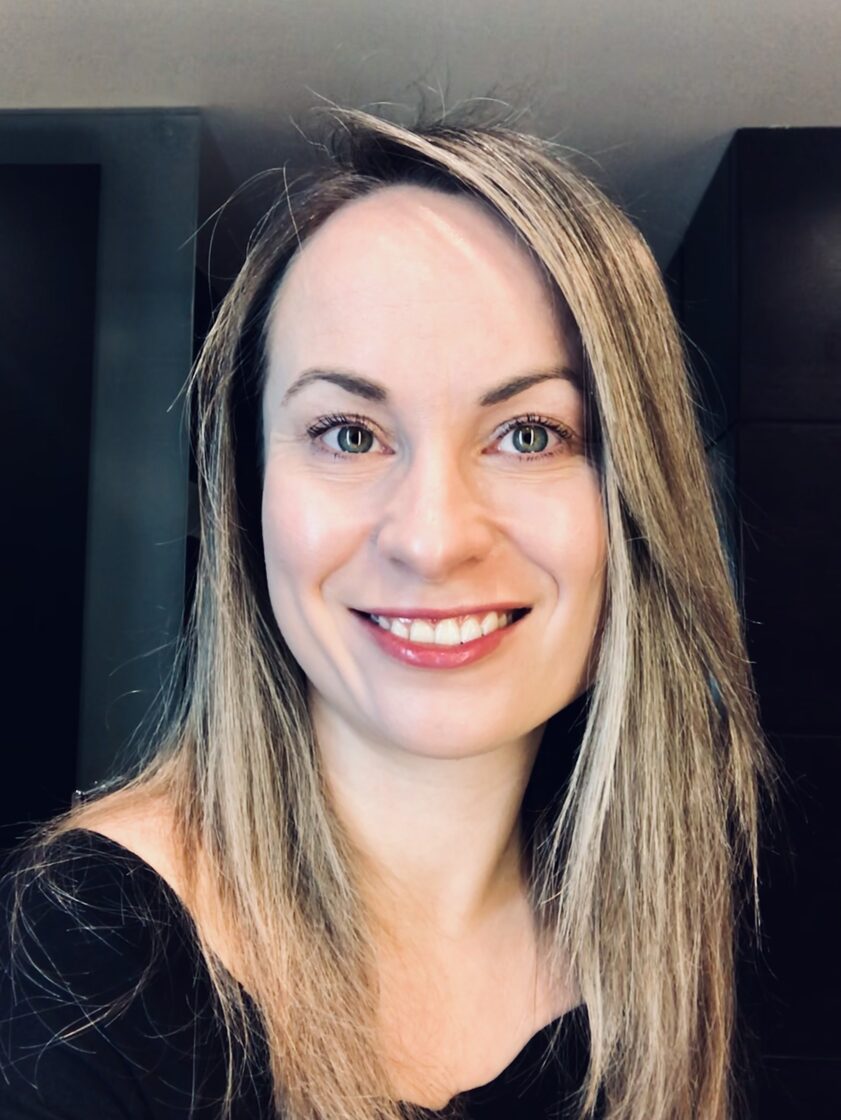
Regina Soobard holds a PhD in science education. She defended her degree in 2015 looking at grade 10–12 student’s scientific literacy development based on cognitive learning outcomes and self-perception. Her main research interests are linked with scientific literacy, giving feedback in tertiary education level and she is starting research focusing on diversity related issues (e.g. language, gender etc.). She is experienced in participating in national and international research- and development projects. In 2014, she was appointed the OECD/PISA study science expert in Estonia. In 2018, she was awarded by Baltic-American Freedom Foundation Research Scholarship for post-doctoral studies spending 5 months in CREATE for STEM Institute at Michigan State University. Additionally, she is also Professional Coach, certified by Erickson Coaching International. Since 2022, she is a member of Baltic-American Freedom Foundation (BAFF) Alumni Council and since 2023, she is a member of European Science Education Research Association (ESERA) Board.
Full CV: Regina Soobard | CV (etis.ee
University of Eastern Finland
The University of Eastern Finland was established in 2010, following a decision by the University of Joensuu (est. 1969) and the University of Kuopio (est. 1972) to join forces in a merger. The university comprises four faculties: the Philosophical Faculty, the Faculty of Science, Forestry and Technology, the Faculty of Health Sciences, and the Faculty of Social Sciences and Business Studies. Our campuses are located in Joensuu and Kuopio.
The University of Eastern Finland is the most multidisciplinary university in Finland. Our high standard of interdisciplinary research and education respond to global challenges and build a sustainable future. Our research is ranked among the best in the world in several fields, 19 of academic subjects ranked in the top 500 in the world. 548th in QS World University Rankings in 2024 and 501-600 in Times Higher Rankings 2024. We offer education in nearly 100 major subjects and we train experts for tomorrow’s changing labour market needs.
In the School of Applied Education Sciences and Teacher Education we educate early childhood education teachers, class teachers, craft and home economics teachers, and subject teachers. We also provide Finland’s widest selection of minor subject study rights. Digital and interactive learning environments are part of our everyday work.
Anssi Salonen, PhD, University Lecturer
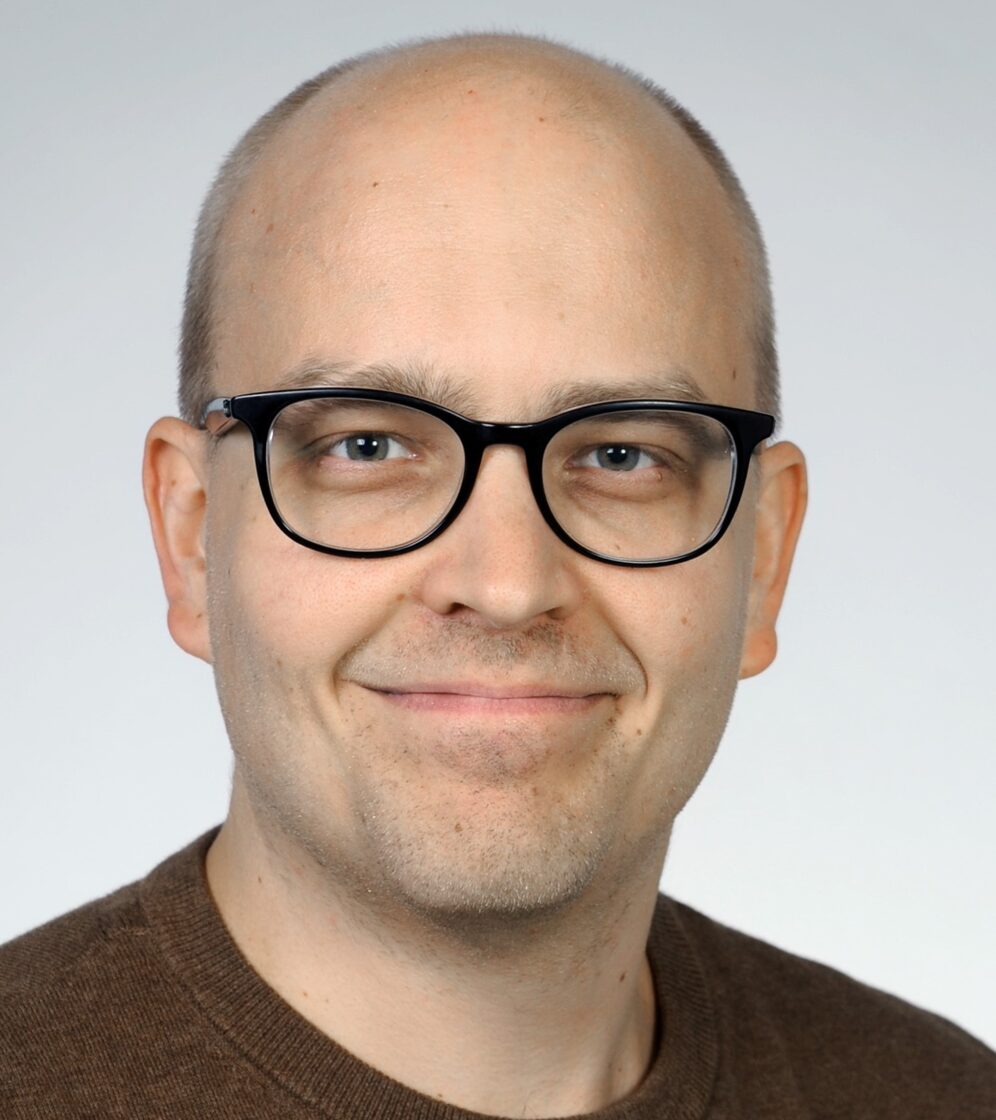
Anssi Salonen is a University Lecturer in technology education. He is the vice-head of the department of School of Applied Educational Sciences and Teacher Education. He has PhD in science education and current research focuses on transdisciplinary STEAM education, career awareness and skills development in technology and engineering. He has worked on several international research projects (e.g., MultiCO 2015-2018; High-Fliers 2020-) dedicated to developing novel teaching-learning sequences, particularly for STEM education. He has led national STEAM research project (2020-2023) and EduEntr-project (2021-2023) studying local Education Ecosystems but also promoting new ways of school-community-industry partnerships. He is also leading several pre- and in-service teacher training and consulting projects around the world.
Kari Sormunen, PhD, Senior University Lecturer

Kari Sormunen is a Senior University Lecturer, having PhD in science education. He is in charge of primary teacher education, where he teach the pedagogy of science in multidisciplinary studies, and supervise multiple bachelor’s and master’s theses. He is also responsible of the pedagogical studies of subject teachers also teaching pedagogy of science mainly to physics, chemistry, and mathematics teacher students. He has been part of several European teacher education projects and spent autumn 2016 as a visiting Fulbright scholar at Stanford University, CA. His research interests are in inclusive science education and multidisciplinary STEAM (science, technology, engineering, art, mathematics) education.
Ville Tahvanainen, researcher
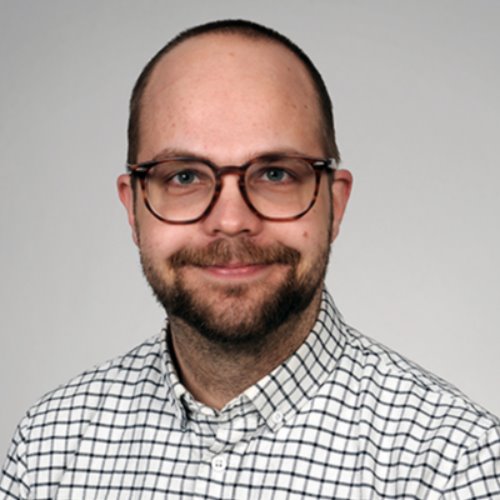
Ville Tahvanainen is a project researcher, and his working hours are divided currently in multiple projects, which concentrate on developing escape game pedagogy educational export products, as well as enhancing STEM-education awareness. He is also specialized on escape game pedagogy. As a subject teacher his interest is also to develop geography and biology teaching.
Justus Kinnunen, University Teacher
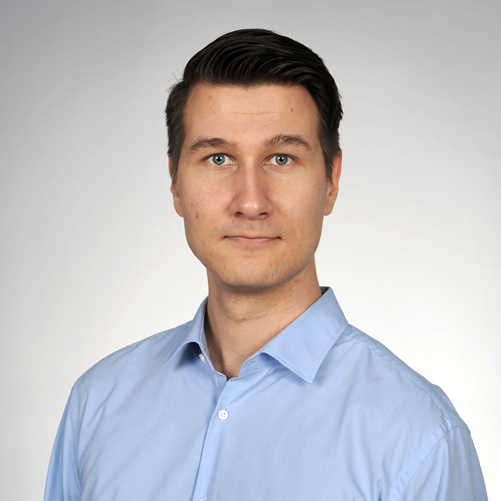
Justus Kinnunen is a University Teacher in Physics and Physics teacher education focusing on teaching laboratory skills to future scientists and teachers. Justus has also been working in science education and STEM teacher education as part of the Finnish national LUMA-network developing science activities locally and in coordination with two Palestinian universities through the Olive-project.
Institute of Education of the University of Lisbon.
IEUL - The Instituto de Educação (IE) is the school of the Universidade de Lisboa committed to research, training and public intervention in Education and Training. Over the past years it has been distinguished as a leading institution in the domain of Education in Portugal. IE provides training activities in undergraduate (bachelor) and graduate (specialization, master's and doctorate) programmes in different fields of Education and Training. IE provides advisory and training services to educational organizations and scientific and technical support for the design, monitoring and evaluation of public policies, in Portugal and in Portuguese-speaking countries. UIDEF, the research unit of the IE-ULisboa, has a strong team of researchers, including members from other higher education institutions, and maintains close partnerships with several national and international partners, attracting a significant number of international students for doctoral studies and post-doctoral programs. UIDEF research is carried out within the framework of the two programmes: Education XXI and Change Forces in Education. The disciplinary-based organization of UIDEF combines with the two programmes in order to better face the complexity of current educational phenomena, which require multi-, inter- and transdisciplinary approaches, as well as to strengthen the focus and quality of its research, and to provide more accurate contributions to foster knowledge-based change and innovation in education.
Assistant Professor Cláudia Faria, PhD

Cláudia Faria is Assistant Professor at the Institute of Education at the University of Lisbon. She holds a PhD in Biology - Ecology and Biosystematics and a PhD in Science Education, both from the University of Lisbon. Her present research is related to the development of innovative science teaching and learning strategies in formal and non-formal contexts, such as museums, science centers and research laboratories. She has been involved in EU projects, such as HIPST and SAILS, and she coordinated several national research projects, focused on scientific literacy, ocean literacy and science education. She is a member of the High Fliers project (2020-2023).
Assistant Professor Hélia Oliveira, PhD
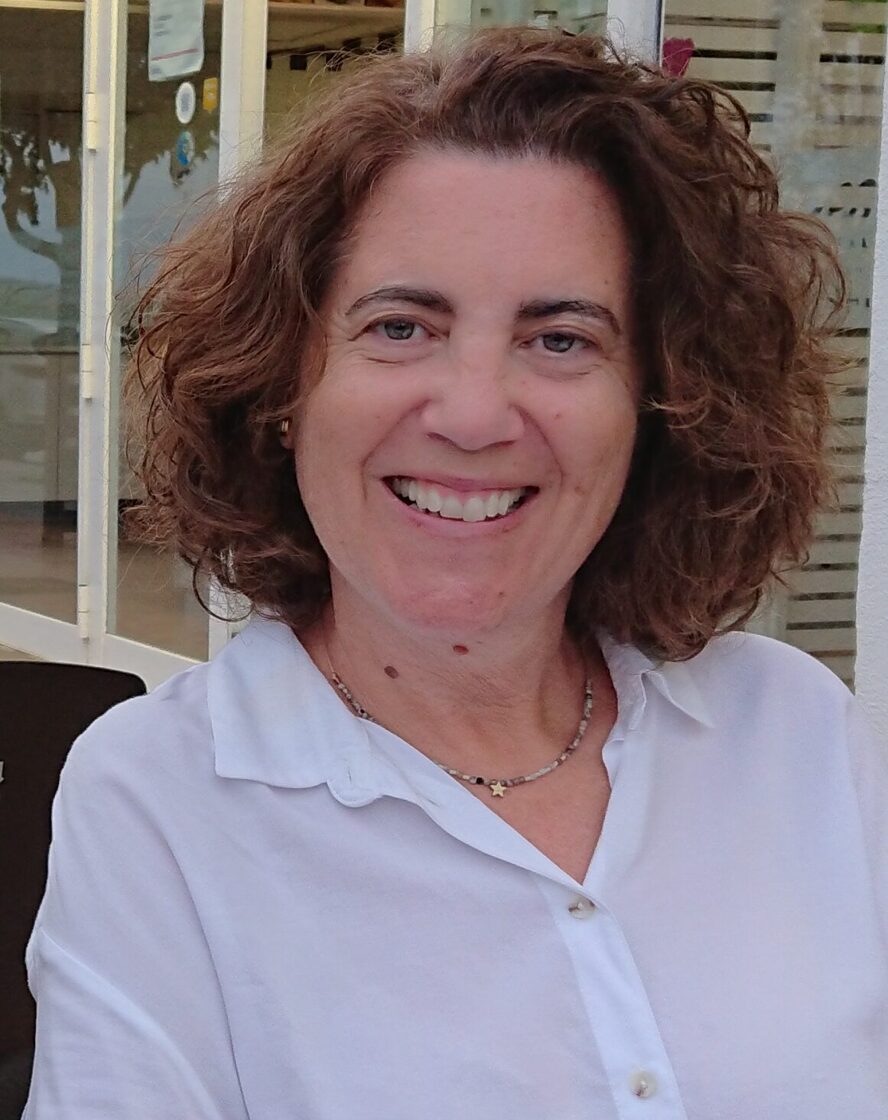 Hélia Oliveira is Assistant Professor in Mathematics Education at the Institute of Education of the University of Lisbon and has large experience in initial and in-service teacher education. She is the general coordinator of the masters’ courses in initial teacher education, at the University of Lisbon. She has been visiting researcher and professor in a three-year long project funded by the Brazilian CNPQ for developing multimedia resources for initial and in-service mathematics teacher education and to study the impact of the use of those materials in (prospective) teachers’ knowledge and practice, concerning inquiry-based learning in mathematics. She has also been involved in several funded Europeans projects such as the two Eramus+ Programs: Project EDUCATE – “Enhancing Differentiated Instruction and Cognitive Activation in Mathematics Lessons by Supporting Teachers Learning”, and the Project HIGH-FLIERS - Highly Interactive Guidance Helpful For Leadership In Educationally Relevant Skills. She is editor in chief of the Journal Quadrante – in the area of mathematics education.
Hélia Oliveira is Assistant Professor in Mathematics Education at the Institute of Education of the University of Lisbon and has large experience in initial and in-service teacher education. She is the general coordinator of the masters’ courses in initial teacher education, at the University of Lisbon. She has been visiting researcher and professor in a three-year long project funded by the Brazilian CNPQ for developing multimedia resources for initial and in-service mathematics teacher education and to study the impact of the use of those materials in (prospective) teachers’ knowledge and practice, concerning inquiry-based learning in mathematics. She has also been involved in several funded Europeans projects such as the two Eramus+ Programs: Project EDUCATE – “Enhancing Differentiated Instruction and Cognitive Activation in Mathematics Lessons by Supporting Teachers Learning”, and the Project HIGH-FLIERS - Highly Interactive Guidance Helpful For Leadership In Educationally Relevant Skills. She is editor in chief of the Journal Quadrante – in the area of mathematics education.Professor Cecília Galvão, PhD
 Cecília
Galvão is Full Professor at Institute of Education, University
of Lisbon. She has a background in Biology and a PhD in Education.
She coordinates the PhD Programme in Sustainability science of the University
of Lisbon, the PhD in Education and the Joint Master Degree in Scientific
Culture and Outreach of Sciences. She also coordinates the master program
on Biology and Geology teaching. She coordinates the Science Education
Research Group and develops research in science education and teachers’ professional
development. She was the Portuguese coordinator of FP6 PARSEL, FP7 SAILS. She
was member of COST Action CA15212 Citizen Science to promote creativity,
scientific literacy, and innovation throughout Europe (2016-2020). She is a
member of the High Fliers project (2020-2023) She integrates the research Unit
ISAMB (Institute of environmental health of the university of Lisbon).
Cecília
Galvão is Full Professor at Institute of Education, University
of Lisbon. She has a background in Biology and a PhD in Education.
She coordinates the PhD Programme in Sustainability science of the University
of Lisbon, the PhD in Education and the Joint Master Degree in Scientific
Culture and Outreach of Sciences. She also coordinates the master program
on Biology and Geology teaching. She coordinates the Science Education
Research Group and develops research in science education and teachers’ professional
development. She was the Portuguese coordinator of FP6 PARSEL, FP7 SAILS. She
was member of COST Action CA15212 Citizen Science to promote creativity,
scientific literacy, and innovation throughout Europe (2016-2020). She is a
member of the High Fliers project (2020-2023) She integrates the research Unit
ISAMB (Institute of environmental health of the university of Lisbon).
Eötvös Loránd University (ELTE)
Dr. Luca Szalay
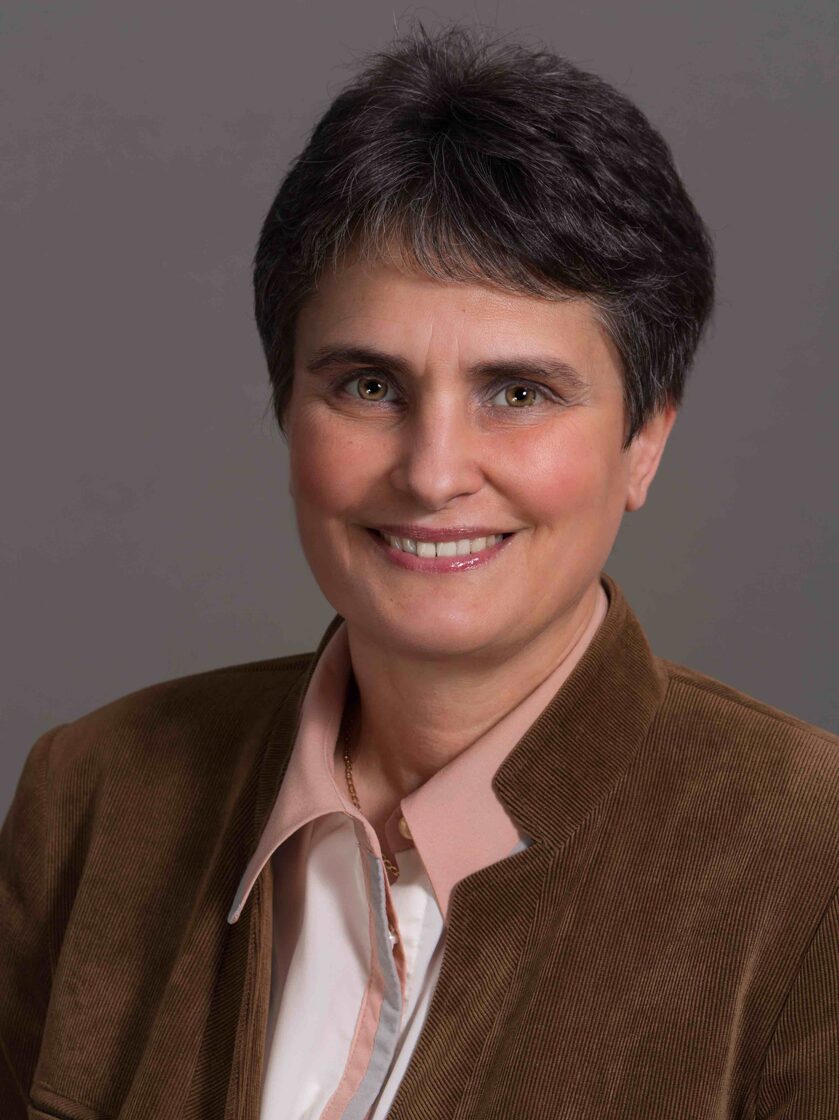
Dr. Luca Szalay is coordinating this project together with Dr. Edina Kiss at the ELTE partner in Hungary. She graduated as a pharmaceutical chemist and got her PhD in chemistry. However, she also has sixteen years of experience in secondary chemistry education. As an assistant professor at the ELTE Institute of Chemistry, she has been teaching chemistry methodology, history of chemistry and English language communication in science (among other subjects) since 2006. She is involved in the work of the ELTE Centre for Methodology in Science Education. She is also the head of the Public Relations Committee of the Institute of Chemistry. In 2008-2009 she chaired the working group on chemistry in a Hungarian national committee on science education. Later she participated in projects for writing the National Core Curriculum and the chemistry framework curricula. In the past decades, she has been coordinator of several national and international projects (including two Leonardo pilot projects funded by the European Union). Currently she is the coordinator of the chemistry teacher training programme at ELTE. She has also organised several in-service chemistry teacher training courses. She chaired the Chemistry Teacher Department of the Hungarian Chemical Society between 2011-2016. Since 2016, she has been leading the MTA-ELTE Research Group on Inquiry-Based Chemistry Education, funded by the Hungarian Academy of Sciences. Her publications on chemistry education have been published nationally and internationally.
Dr. Edina Kiss

Edina Kiss is a master teacher at ELTE. She has been teaching mathematics and chemistry in public education for more than 25 years and has been involved in the pre-service and in-service training of chemistry teachers for seven years. She is also involved in teaching pharmacist students from Semmelweis University. She holds a PhD degree in chemistry methodology, focusing on students' conceptual development and chemical misconceptions. She is a member of the MTA-ELTE Research Group on Inquiry-Based Chemistry Education (led by Luca Szalay) and is continuously involved in their research projects in the areas of inquiry-based chemistry education, developing students' experiment design skills and systems thinking. Since 2020, she has been a member of the "Teach for Hungary" mentoring programme, in which ELTE students, including STEM students, mentor 12–16-year-old pupils from disadvantaged communities. She is involved in training students and facilitating mentoring.
Ludwig-Maximilians-Universität (LMU)
Ludwig-Maximilians-Universität (LMU) Munich is one of the leading universities in Europe with a tradition going back over 500 years. It offers the broad spectrum of all fields of knowledge and aims to develop interdisciplinary, problem-oriented approaches to solutions for the increasingly complex questions of the future concerning people, society, culture, the environment and technology. LMU’s academic staff are regularly represented among the winners of prestigious national and international research prizes, such as Nobel Prizes, Leibniz Prizes, Humboldt Professorships and European Research Council Grants. LMU was a founder member of the League of European Research Universities (LERU), Venice International University (VIU), the German Academic Exchange Service (DAAD) and the Bavarian International Academic Centers.
The LMU Teacher Education Centre (TEC) is of great importance. It is a central academic institution involved in all questions of teacher education focusing the development of research-based standards for teacher education and their practical application. It started the project Lehrerbildung@LMU as part of the “Qualitätsoffensive Lehrerbildung”, a joint initiative of the Federal Government and the Länder which aims to improve the quality of teacher training, which is funded by the Federal Ministry of Education and Research. LMU is a major institution of teacher education with currently approximately 8,000 pre-service teacher students and an annual intake of over 1,600 students into teacher-training programs. Teacher education at LMU spans a range of over 40 different subjects taught in 16 faculties, including primary, secondary and special-needs education. TEC members are involved in high-profile international projects in research and development, such as PISA (Programme for International Student Assessment) while at the same time taking responsibility for school and curriculum development at the local, regional and national level, e.g., by the formation of school networks or by research projects in co-operation with schools in the greater Munich area as well as other educational institutions.
Professor Silvija Markic, PhD

Is a Professor for Chemistry Education at an LMU. Over the years focus of her research is on students, teachers, and the parents and am focusing on developing materials for language-sensitive and language-supportive teaching and learning of science, supporting pre- and in-service science teachers in their competences to teach language-sensitive and language-supportive, and offering parents opportunities to support their children in the development of the language of science. Further, her research interests include science teachers` beliefs and pedagogical content knowledge, their pedagogical scientific language knowledge, cooperative learning and alternative teaching methods.
Dr. Swantje Müller, PhD
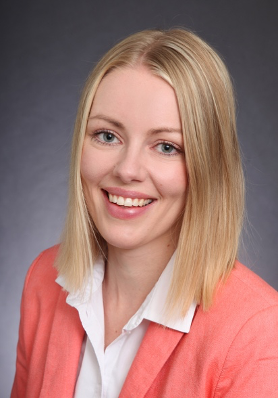
is a senior researcher in Markic Group at the LMU in field of Chemistry Education. She is a teacher for chemistry and geography. Her research focusses on creativity and creativity development in chemistry lessons and in extracurricular educational settings
Laura Naumann
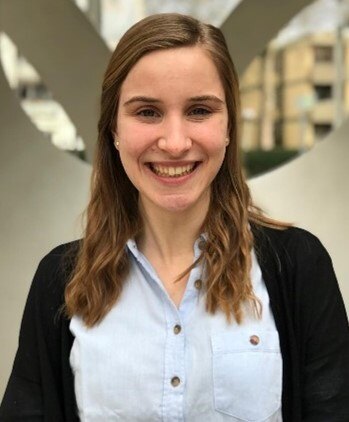
is a dedicated Ph.D. candidate who holds a Master's degree in Chemistry from the University of Heidelberg, with her master's thesis completed at LMU Munich. In her role within this project, Laura will develop and evaluate the modules for in- and pre-service teachers. Drawing upon her extensive research experience in the field of Chemistry, she is well-equipped to contribute valuable insights. Furthermore, Laura brings experience in teaching and working in different groups, for example through her engagement in the student council and her work in a pedagogical circus. This combination of academic expertise and practical teaching experience positions Laura to make significant contributions to the project's goals.
Ivo Pilar Institute of Social Sciences
The Ivo Pilar Institute of Social Sciences is the leading and largest Croatian public research institute in the field of social and multidisciplinary research, with more than 50 PhD scientist and 30 research assistants and post-docs. The Ivo Pilar Institute of Social Sciences Ivo Pilar, founded by the University of Zagreb in 1991, while in 1993, formed the Ivo Pilar Institute as a public institution in the Republic of Croatia. There are app. 90 researchers working at Ivo Pilar Institute (60 senior researchers and 30 early stage researchers and assistants). It`s areas and fields of scientific research are: a) social sciences (psychology, sociology, demography, education and rehabilitation sciences, political sciences, economics, information and communication sciences), b) humanities (history, theology, philosophy, ethnology and anthropology, religion science, philology) and c) interdisciplinary scientific areas (cognitive sciences, geography, gender studies). The Institute’s primary mission is to conduct high-quality interdisciplinary scientific and professional research in the field of SSH. Since its foundation, Institute Pilar has maintained a multidisciplinary approach in research and has developed cooperation with a comprehensive network of cooperation with international, national and regional organizations. PILAR’s scientists have participated in more than 500 research projects, of which large amount are international projects. The Institute and its scientists are involved in postgraduate and masters university programs, primarily at the University of Zagreb. The Institute’s activities are organized through several research centres. The centre participating in the High – Filers Project is The Research Centre for Knowledge, Education and Human Capital Studies ( Head of Centre Professor J. Burušić). The Centre has more than 15 years experience in carrying out some of largest, most complex and comprehensive research project in educational system in the Republic of Croatia. Those projects include cooperation with all schools in Croatia, i.e. more than 200 000 student and 1000 of teachers. Specifically, Institute Pilar has participated in two European Social Fond Projects focusing on : 1) The Croatian Qualification Framework and Labor Market Needs (2019-2021) and 2) Development of a Model for Identification of STEM talented and Gifted students (2018-2019). In addition, the JOBSTEM project ( Croatian Science Foundation, 2015-2019) concentrated on comprehensive longitudinal analysis of the process of forming students interest toward professional careers, including teachers careers and STEM related careers. Institute Pilar has experience in European frameworks and research programs FP7 and H2020 (related to the topic; EDCP - European Cohort Development Project (H2020)), Erasmus + programs (related to the topic; IMPROVET – Improving Skills in Vocational Education and Training) plus European interregional, cohesion and social programs. On the basis of previously demonstrated excellence and achievement in the field of educational research, the Ivo Pilar Institute is a constitutive part of the Croatian Scientific Centre of Excellence for School Effectiveness and School Management, which is the Croatian official excellence network, appointed by the National Council for Science and Higher Education. The Pilar’s Research Centre for Knowledge, Education and Human Capital Studies ( Head of Centre Professor J. Burušić) has collaborated with a number of the most influential researchers in the field of educational research (e.g. professor Jacquelyn S. Eccles from USA), and completed research projects together with researchers from USA, France, Hungary and Croatia (https://www.pilar.hr/).
Professor Josip BURUŠIĆ, PhD

Josip Burušić, professor at University of Zagreb, Faculty of Pharmacy and Biochemistry and at the Department of Psychology, has a PhD in Psychology. He is the Head of the Ivo Pilar Institute’s Research Centre for Knowledge, Education and Human Capital Studies, the Director of the Research Unit for school effectiveness research at the Croatian Scientific Centre of Scientific Excellence for School Effectiveness and School Management, member-associate of the Scientific Committee for Education and Schools at the Croatian Academy of Science and Arts (HAZU), a member of the Expert Group for the development of the National Development Strategy of the Republic of Croatia until 2030 in the field of education and human resources, and former member of the National Council for Social Sciences in the Republic of Croatia (2013-2017). Recently completed, or on-going grants, focus on the development of students interests towards science education, STEM school subjects, longitudinal studies on the process of development of interest for STEM related careers, the role of parental influences and capital towards in STEM career choices, and the optimization of teaching methods and intervention programs based on the integration or complementing informal, non-formal and formal science education content and sequences, especially in relation to the usage of social media. As PI, he has recently completed a comprehensive ESF funded project related to new teaching methods for students with high ability and talents related to science education, in which new teaching materials and teaching units have been produced, and integrated in a broader model of identification, classroom and out-of- classroom teaching activities and professional guidance during schooling of students talented and gifted students for STEM area. In his professional life, he has realized several research visits to various academic and research institutions around of the world (e.g. Germany, USA, Japan, UK, Malaysia, Austria, Finland, Estonia). He is a member of the international research organizations -– ESERA and AERA (where he is involved in various reviewer panels) and is a member of the editorial board of the. Journal of Science Teacher Education).
Mirela Crljen, M.A., senior research associate
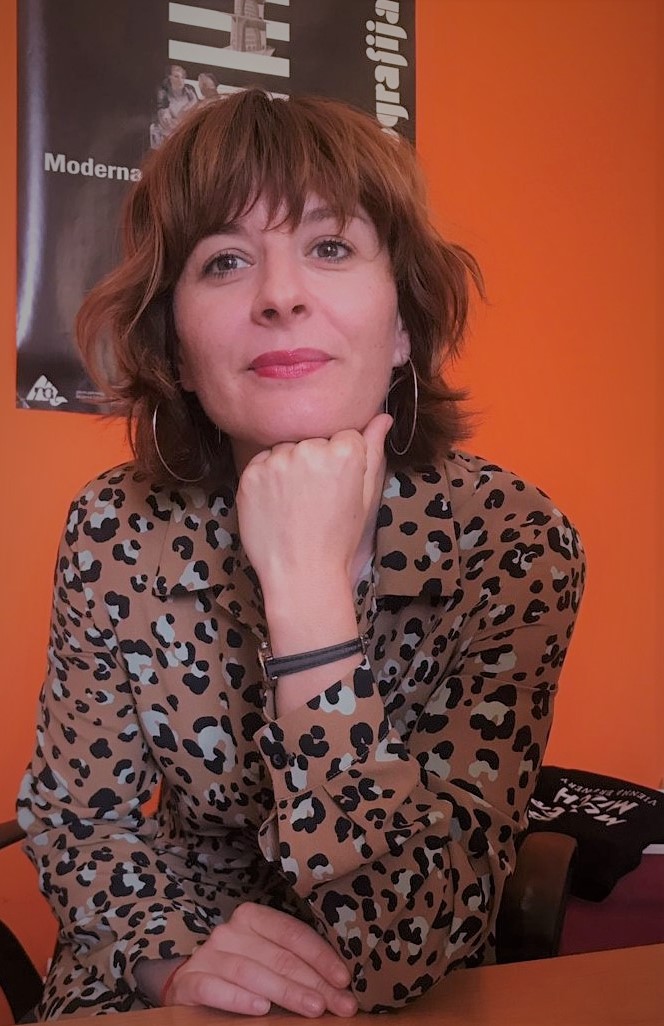
Mirela Crljen, (F), M.A., is senior research associate at the Ivo Pilar Institute, and she has expertise in programs based on collaboration and participation of different stakeholders (research groups, schools, institutions, business and NGOs) in the development of public events, promotion programs, and dissemination of science education content. In the research group, she is involved in activities on project administration, project promotion and impact and in activities related to the collection and analyses regarding students’ and teachers’ experiences in out-of-school learning settings.
Dokuz Eylül University (DEU)
Dokuz Eylül University (DEU) has a long and proud history of being a hub of research and education in Turkey, particularly in the Aegean Region since its foundation in 1982. It is one of the largest universities of Turkey with 63.617 students from all over Turkey and 1.860 foreign students from 102 countries study. Though its distinguished position in Turkish Higher Education area, Dokuz Eylül University intends to foster its global presence in education and research and to become a key player in the global knowledge network. Dokuz Eylül University was selected as one of the 20 pilot universities by Turkish Higher Education Council (YÖK) in 2018 for implementing the internationalisation strategy and thus it has become one of the pioneer universities in Turkey which take the leading role in the process of internationalisation of Turkish Higher Education. Dokuz Eylül University was awarded the “Institutional Accreditation Certificate” within the scope of the “2021 Institutional Accreditation Program” by the Higher Education Quality Council (YÖKAK) in June 2022 and the Institutional Accreditation Certificate was presented to our Rector by the Chairman of the YÖKAK at the ceremony held in July 2022. DEU benefits largely from its geographical position as being located in the city of Izmir and being at the crossroads of Europe, Asia, Africa and Middle East. Izmir is called as the pearl of the Aegean with its mild Mediterranean climate, multi-cultural social life and strong economy. Izmir is the city of university students, artists, scientists and business people. It hosts six state universities and two private foundation universities. DEU has 18 faculties involving the fields maritime, education, literature, science, fine arts, nursing, law, economics and administrative sciences, theology, business, architecture, engineering, medicine, veterinary, dentistry, tourism, sports sciences, phisical therapy and rehabilitation, 10 graduate schools and institutes, 1 conservatory, 2 schools, 6 vocational schools and 49 research and application centers. Dokuz Eylül University offers a lively scientific milieu with the total number of 3.196 academic staff including 716 Professors, 367 Associate Professors, 484 Dr. Faculty Members. At DEU, you have the opportunity to become a student at one of the 475 postgraduate programmes, 126 BA level programmes, 66 associate degree programmes. DEU library offers a great opportunity of research for our students and researchers with 372.217 print books, 403.786 e-books, 67.729 e-journals. Dokuz Eylül University has been granted European Credit Transfer System (ECTS) Label and Diploma Supplement (DS) Label by the European Commission. These ECTS label and Diploma Supplement Label are granted to Dokuz Eylül University upon its excellence in the application of procedures regarding the recognition of academic qualifications for student mobility. Dokuz Eylül University actively participates in exchange programmes with many European countries. DEU which participated in the Erasmus Mobility Program since the 2003 – 2004 academic year, has 395 inter-institutional agreements. Again, 3.358 students of Dokuz Eylül University were sent abroad for training and 1.241 students came to the university from abroad since the start of Erasmus programme. Dokuz Eylül University also takes part in Mevlana Exchange Programme which involves exchange opportunities with higher education institutions all over the world without geographical discrimination. Students may study abroad for one (minimum) or two (maximum) terms and academic staff may lecture abroad from one week (minimum) to three months (maximum). Accordingly, students and academic staff from any country may benefit from this programme being hosted by Turkish higher education institutions in order to study or lecture. DEU also has bilateral academic collaborations with 68 education and research centers world-wide. As part of its internationalisation strategy, the course/subject titles of the all-degree programmes are easily available at the website of Dokuz Eylül University. Dokuz Eylül University publishes the course catalogue in the national language and in English. All interested parties can easily access the catalogue which provides detailed, user-friendly and up-to-date information on the institution’s learning environment involving the qualifications offered, the learning, teaching and assessment procedures, the level of programmes. The course catalog also involves information on the programme outcomes and the contact information for the programme and courses. The course catalogue is available at the homepage of the university and you can reach it here: http://debis.deu.edu.tr/ders-katalog/2022-2023/eng/index.html
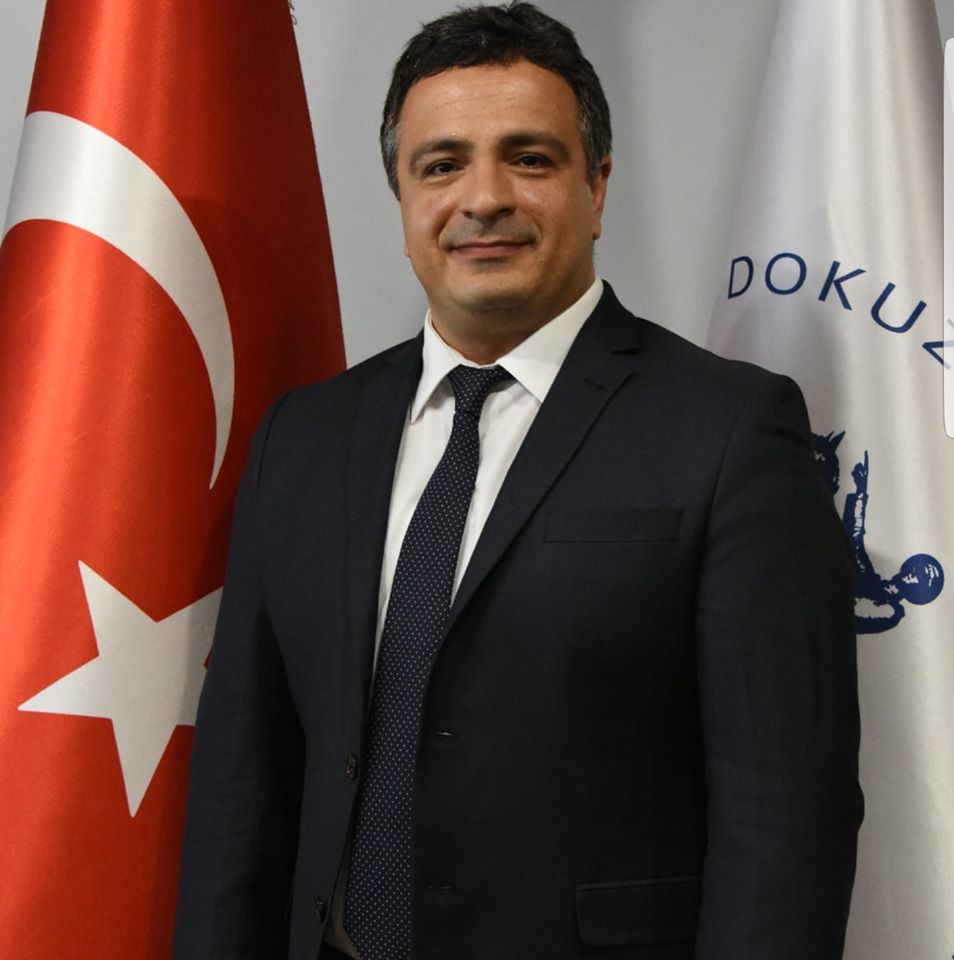
Professor Bulent Cavas, PhD, completed his Master and Ph.D studies in the field of science education at Dokuz Eylul University, Faculty of Education, Science Teacher Training Programme in 1998. He made his Post-Doc on Career Choices in STEM Fields in Middle East Technical University, Ankara-Turkey. He has over 150 national and international publications and written 10 books on science and science education. He is a member of CMAS-Science Committee. Currently, his research interests are Responsible Research and Innovation, Open Schooling, Inquiry Based Science Education, Virtual Reality in Science Education. He is Past - President of International Council of Associations for Science Education (ICASE - www.icaseonline.net). He works as an external expert for evaluating European Commission Projects in Brussels-Belgium. Currently, he is working as Head of Science Education Department - Professor of Science Education at Dokuz Eylul University (www.deu.edu.tr) in Izmir-Turkey.
Asst. Professor Simge Akpullukcu Koc

Asst. Professor Simge Akpullukcu Koc completed her undergraduate (2008), graduate (2011) and doctoral (2017) studies in the field of Science Education at Dokuz Eylül University. She studied at the Laboratory Safety Institute (Boston) in Massachusetts, United States of America as a doctoral researcher in 2014-2015. Between 2009 and 2021, she worked as a Science Teacher in Aydın. She has many national and international papers and articles in the field of science education and has 3 books and book chapters on Laboratory Safety and Teacher Professional Development Education. Her research interests include inquiry-based science education, STEM education, interdisciplinary science teaching, laboratory safety, teacher professional development education and research methods in education. Since 2021, she has been working as a Lecturer at Dokuz Eylül University, Department of Science Education.
The University of Latvia (UL)
The Interdisciplinary Center for Educational Innovation (ICEI) is a significant platform for the development of Latvia's educational innovations, where purposeful and systematic, long-term collaboration with schools leads to the creation of research-based innovations and technological solutions tailored to the needs of schools, teachers, and students. In tandem with schools, ICEI team purposefully continue to learn and implement research-based innovations in educational practice. This provides the opportunity for support in the implementation of innovations not only to fulfil extensive national priorities for professional development but also to develop exclusive, research-based professional development (lifelong learning) programs tailored to the needs of clients. ICEI has a strong and growing team of researchers and maintains close connections with international partners trough previous (PROFILES project) and present (SellSTEM project) research consortiums.
Dace Namsone

Dace Namsone is a senior researcher at UL and the director of ICEI. She has published more than 100 scientific publications (23 of those indexed in WoSCC and Scopus) and has experience as a researcher and project leader in 7 national and 2 international research projects. She is expert in teacher competency assessment and management, design, evaluation and implementation of teacher professional development and school innovations. Dr. Namsone is also a senior lecturer at the UL; she has acquired broad experience and skills in project management and in the development of conceptual models and frameworks trough leading the development of updated national curriculum and teaching & learning support materials. Dace has served as contributing author to Euridyce and OECD reports, highlighting her expertise in the Latvian education system.
Kārlis Greitāns

PhD candidate Mg. Chem. Kārlis Greitāns is a researcher and assistant lecturer at UL. Kārlis has participated in two national research programme projects related to innovative solutions for assessing teacher competencies and developing blended professional development solutions. Current work includes developing effective solutions to improve teaching and learning for conceptual understanding in primary science. Right now, he is working on doctoral dissertation “In-Service Science Teacher PD to Promote Changes in Teaching” (supervisor Dr. Namsone). Kārlis also has broad experience as chemistry and primary science teacher.
